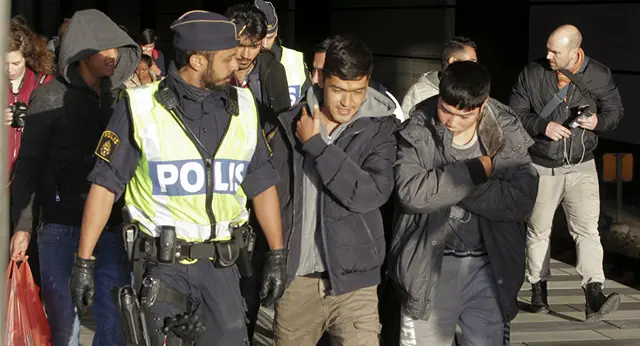The European Union urged its member states to quickly deliver on their refugee relocation and resettlement commitments ahead of a two-day summit here discussing the refugee crisis.
The EU's temporary emergency relocation scheme was established in September 2015, according to which EU countries committed to relocate 160,000 people from Italy and Greece by September 2017.
EU countries also promised to resettle 22,504 persons in clear need of international protection in June 2015, the so-called European resettlement scheme.
However, on the eve of the latest summit, an implementation report published by EU's executive body show the pace of transfers is far from satisfactory.
The schemes have had a poor track record among EU states. A total of 937 asylum seekers had been relocated from Greece and Italy as of March 15, with EU leaders at the time setting a 54,000 target by September 2016.
The report said the lack of political will among EU member states has been the most important factor in slowing down the process.
Currently, the total number of persons ready to be relocated exceeds the pledges made by EU countries. In order to meet the commitments allocated so far under the relocation scheme, around 5, 600 relocations per month should be achieved as a minimum, implying a relocation procedure of a maximum period of two weeks.
Based on this assessment, the EU called for at least 6,000 relocations to be completed before April and at least 20,000 relocations by May.
The European Commission, the chief executive body of the bloc, made several specific recommendations in the report, asking members to increase their pledges and shorten the time needed to process applications.
The EU called on the countries to limit additional security checks to justified cases only, to provide pre-departure information packs and to respond as soon as possible to the European Asylum Support Office's calls for experts.
Greece and Italy were called upon to step up efforts from their side to ensure a speedy and efficient functioning of the scheme, in particular in relation to systematic security checks and the quality of the information sent to other EU countries of relocation.
As for the resettlement scheme, the EU called member states to urgently step up the ongoing efforts, ensuring an orderly, well managed and safe arrival and admission of refugees.
According to the report, 4,555 displaced people in need of protection were resettled as of March 15 to 11 countries. Most of the participating countries have resettled Syrians staying in Jordan, Lebanon and Turkey.
The main challenges identified by the report are linked to the differences in selection criteria, length of procedures, integration tools or number of places available between different EU countries.
For these reasons, the EU called for the exchange of best practices and experiences among the resettling countries.
Europe has been going through the worst refugee crisis since World War II. Greece, a front-line country in the crisis, currently sees some 2,000 refugees arriving on its shores each day.
"With the humanitarian situation in Greece getting more acute every day, member states urgently need to deliver on their commitments and prevent a further deterioration of the situation for refugees in Greece," EU commissioner for Migration, Home Affairs and Citizenship Dimitris Avramopoulos said.
"Member states need to provide alternative safe and legal routes to Europe for people in need of international protection," he added.
At the ongoing EU summit, leaders from EU institutions and member states are expected reiterate their calls for more efforts on hotspots and more support to Greece. It is said a new, upgraded agreement between the EU and Turkey could be expected to tackle the refugee crisis. Enditem
 简体中文
简体中文

